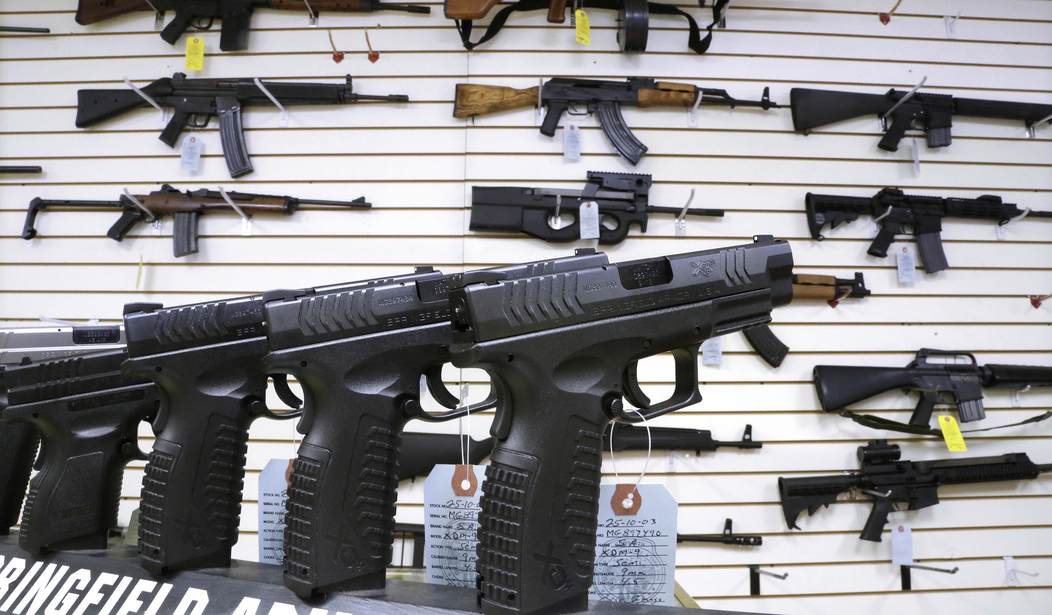Fear of mass shootings is one of the main reasons many give for why they want gun control. Op-eds from students and other young adults talk about their fear of never making it to graduation day. Parents claim they're paranoid about taking their child to school because they say they don't know if their loved one will ever come home.
The fears are overblown and ramped up to make other people afraid. Scared people don't always make the best decisions, and scared people often want the government to save them. In other words, they want gun control
However, a new survey suggests people aren't that scared. Perhaps more accurately, if they're afraid, they're making the smart decision to be proactive rather than cowering.
A new survey of 400 Americans highlights a widespread national climate of fear, revealing that over half of respondents—50.5%—have considered buying a gun for personal protection in response to reports of mass shootings.
The findings by Elsner Law Firm’s poll underscore a significant shift in American gun culture, where firearms are increasingly viewed as essential “shields” against danger, not just recreational tools.
The Rise of the “Protective Firearm”
The data indicate a dramatic shift in the rationale for gun ownership. A commanding 54.5% of participants stated that guns matter mainly for personal safety, overwhelmingly eclipsing reasons like hunting or sport (30%), tradition (9.25%), or cultural identity (5.75%).
This view of guns as a safety measure was strongest among specific demographic groups:
- Women and urban residents reported feeling more exposed and thus prioritized protection.
- Households earning under $60k showed the greatest emphasis on safety.
- Even in states with strong hunting traditions, such as Texas and Pennsylvania, personal safety was the top-selected reason for gun ownership.
That's very good news, but let's not get too excited just yet.
That's 400 people out of a nation of more than 300 million. This is what we call a "small sample size." Because the size is so small relative to the total population, what we may be seeing is a case of the minority opinion being over-represented.
In other words, this may not be reflective of reality.
However, 400 people isn't the smallest sample size I've seen, so maybe it's not so bad.
The truth is that we know gun sales remain high, even if they've dipped a bit since Trump returned to office. At least some of those are going to be new gun owners. That's just how it goes.
It's entirely possible that more than we might expect are buying up guns because they're worried about mass shootings, and the truth is that they're wise to do so.
Despite the scaremongering rhetoric from anti-gunners, good people with guns stop mass shooters, often before they can reach the threshold of being considered mass shooters. Putting down bad guys who want to rack up a massive body count should qualify as a public service, but instead, we get anti-gunners pretending that armed citizens are the problem.
But people aren't that stupid. Sooner or later, they're going to figure--at a minimum--that they won't be the problem, so they might as well get a gun and have the ability to protect themselves.
Hell, even some anti-gunners have guns, all because they trust themselves with firearms, even if they don't trust anyone else with one.
So while this survey isn't definitive by any stretch of the imagination, it's a positive sign of what may be going on beneath the surface. NSSF data on gun sales isn't necessarily telling us who is buying what for what reason, after all, and if this holds with other, wider surveys, we might be seeing something that anti-gunners aren't going to like.
For the most part, gun owners really do tend to become gun voters, with those previously mentioned exceptions. If more than half of America ends up owning a gun, gun control is going to be a non-starter across the board.








